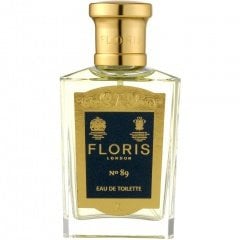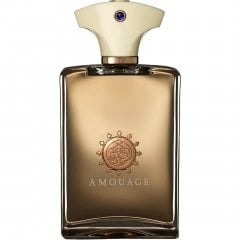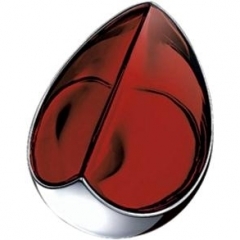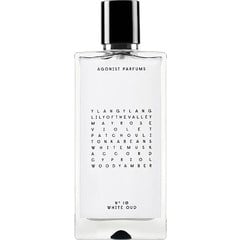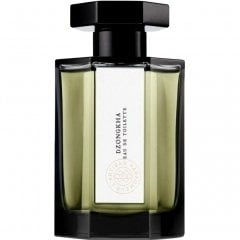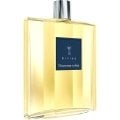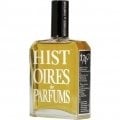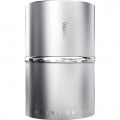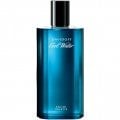
ColinM
Reviews
Filter & sort
British soap
N. 89 by Floris is a delightfully old-school “dandy” gem, quite a prototypical British soapy barbershop scent all about rose, lavender, mossy woods and citrus. It’s astonishingly uncreative, but truly impeccable to any extent. And surprisingly rich and good quality even in the current version, which smells absolutely great, round, not overly synthetic or flat as many current versions of old fragrances – or as other inferior, similarly-themed English products like Geo Trumper’s ones (Floris is quite better quality-wise for me). Bronnley’s Gentleman cologne does quite a similar job at a more affordable price, but No. 89 smells probably a bit deeper and more distinguished than that, also more rose-y and powdery. Very classy, very solid, very “gentlemanly”, a tad pedantic yet less boring than it may seem. More than pleasant all in all. British barbers’ soap at its finest.
7,5/10
7,5/10
Masterpiece!
Dia Man by Amouage is stunning. Stunning! Not my favourite Amouage to wear “daily” and forget about it, due to its very subtle presence on skin (which for me would be a crime to miss, so I’d rather wear it when I’ve enough attention and peace of mind to appreciate it), but surely and by far, probably my favourite ever of their range as a work of... hell, there, I’ll say it: a work of art. I think it accomplishes a level of vibrant creativity and impeccable perfection no other Amouage ever did, except maybe for Ciel. But Dia probably pushes the limit even above that. It manages to be smoother, to subtract even more, to make an even more precarious, complex and thin balance perfectly stand still as a transparent ice sculpture. Just replacing ice with air. Others in their range are more easy to love, richer and more fulfilling maybe, surely performing better and thus being more appealing and easier to wear. But Dia Man is just something different.
On paper it is seemingly quite a simple, understated floral-suede-vetiver scent with spicy-green accents – and you could wonder where’s the deal. The deal is precisely in how Dia transform that mildly promising, yet probably not-overly-exciting structure into something completely amazing. And that sadly can’t really be described with words, which would only make it sound undeservedly boring. Or well, mines would surely. I could mention a mind-blowing weightlessness, a unique sense of natural refinement, an amazingly, almost hypnotic slow evolution bringing in and out vetiver, smooth smoke and posh powdery suede, quiet clean woods, delicate breezy flower petals (orris, peony, ylang) which you can almost feel agitated by some gentle wind, an incredibly crisp yet almost unperceivable sort of grassy-minty aroma breezing erratically through the notes as a fairytale ghost of an elf, a genius touch of silky fruitiness... but that would all make Dia sound “just as another good scent” – while it isn’t. Not because it isn’t good, obviously, but because it’s beyond a scent - it’s a world, really. I would add “totally unparalleled” if Hermès Cuir d’Ange didn’t exist, as in some way, I think these two scents share some connections – both in some notes (especially the powdery-suede treatment), in their stunning quality, and in their general texture and inspiration. But creativity-wise, Dia is probably a tad superior to that, as it dares a bit more in terms of minimalism and complexity. The palette is broader here, so to speak, but surely they share some roots.
Pardon this personal detour but in a way, Dia Man reminds me of some summer holidays I used to spend in Switzerland, Engadin valley, some years ago. I always admired and deeply enjoyed the sense of cleanliness, clarity, purity and almost unsettling calm you can feel wandering through the lakes and the Graubünden mountains in the summer season, together with the warm, cozy, subtle yet somehow also very austere, pragmatic, even slightly decadent neat elegance of many houses and cafés there. In my memories the world there was all green and blue with a sprinkle of flowers, a constant uplifting crisp breeze, a Swiss sense of restrained elegance combined with a deep, archaic love for nature and for the mountains, with their dark shades and primitive secrets (which a couple of clouds are enough to transform from heaven to the most frightening place on Earth). I mean, Nietzsche spent his holidays there, in Sils Maria’s village – you get what I mean. It’s not only about some fresh air and good food to seek some rest. It’s like wandering through human nature. Now ironically Amouage’s heritage hasn’t much to do with of all that (or maybe it has?), and yet the refreshing, soothing sense of sophisticated, almost meditative yet also very “civilized” raw naturalness is quite the same. Probably “natural elegance” hasn’t ever make so much sense as it would for Dia Man. And it’s something really beyond simple charm, or a simple “natural feel”. It’s truly the modulating smell of a whole ideal world in a bottle, a blend of crisp archaic nature and modern cozy refinement. And the choice of giving it such a discreet, subtle texture is just pure genius to me, as it really feels like a call to your sensitivity and intellect to appreciate it at its fullest. Brilliant!
10/10
On paper it is seemingly quite a simple, understated floral-suede-vetiver scent with spicy-green accents – and you could wonder where’s the deal. The deal is precisely in how Dia transform that mildly promising, yet probably not-overly-exciting structure into something completely amazing. And that sadly can’t really be described with words, which would only make it sound undeservedly boring. Or well, mines would surely. I could mention a mind-blowing weightlessness, a unique sense of natural refinement, an amazingly, almost hypnotic slow evolution bringing in and out vetiver, smooth smoke and posh powdery suede, quiet clean woods, delicate breezy flower petals (orris, peony, ylang) which you can almost feel agitated by some gentle wind, an incredibly crisp yet almost unperceivable sort of grassy-minty aroma breezing erratically through the notes as a fairytale ghost of an elf, a genius touch of silky fruitiness... but that would all make Dia sound “just as another good scent” – while it isn’t. Not because it isn’t good, obviously, but because it’s beyond a scent - it’s a world, really. I would add “totally unparalleled” if Hermès Cuir d’Ange didn’t exist, as in some way, I think these two scents share some connections – both in some notes (especially the powdery-suede treatment), in their stunning quality, and in their general texture and inspiration. But creativity-wise, Dia is probably a tad superior to that, as it dares a bit more in terms of minimalism and complexity. The palette is broader here, so to speak, but surely they share some roots.
Pardon this personal detour but in a way, Dia Man reminds me of some summer holidays I used to spend in Switzerland, Engadin valley, some years ago. I always admired and deeply enjoyed the sense of cleanliness, clarity, purity and almost unsettling calm you can feel wandering through the lakes and the Graubünden mountains in the summer season, together with the warm, cozy, subtle yet somehow also very austere, pragmatic, even slightly decadent neat elegance of many houses and cafés there. In my memories the world there was all green and blue with a sprinkle of flowers, a constant uplifting crisp breeze, a Swiss sense of restrained elegance combined with a deep, archaic love for nature and for the mountains, with their dark shades and primitive secrets (which a couple of clouds are enough to transform from heaven to the most frightening place on Earth). I mean, Nietzsche spent his holidays there, in Sils Maria’s village – you get what I mean. It’s not only about some fresh air and good food to seek some rest. It’s like wandering through human nature. Now ironically Amouage’s heritage hasn’t much to do with of all that (or maybe it has?), and yet the refreshing, soothing sense of sophisticated, almost meditative yet also very “civilized” raw naturalness is quite the same. Probably “natural elegance” hasn’t ever make so much sense as it would for Dia Man. And it’s something really beyond simple charm, or a simple “natural feel”. It’s truly the modulating smell of a whole ideal world in a bottle, a blend of crisp archaic nature and modern cozy refinement. And the choice of giving it such a discreet, subtle texture is just pure genius to me, as it really feels like a call to your sensitivity and intellect to appreciate it at its fullest. Brilliant!
10/10
Brilliant!
As usual I’ve a bit of a hard time with fragrances known for being “skanky”, “dirty”, “animalic” and in broader terms, “challenging”. Because they never really seem so to me. And this is the case of Kingdom, too. It’s a fantastic fragrance, that’s for sure, but I get really nothing dirty or skanky here. Either I’m too used to live in the dirt myself, or have dated particularly clean people, because I get really no smell of sweat or “ladies’ parts” (let alone “man’s crotches”) here, or whatever other kinky stuff. Kingdom seems to me basically a complex, yet actually surprisingly mannered blend revolving around notes of rose, sandalwood, musk and cumin with a dark ambery-mossy base accord, and a silky frame of whiter floral notes. Surely not a light scent, and I see how a hefty dose of rose combined with an equally generous dose of cumin on a thick load of musk and woods can result into something “carnal”, alluring, almost intoxicating, but it doesn’t really seem anything particularly “skanky” or challenging to wear to me. It’s just more very vibrant, warm, refined and sensual, surely much “human” and somehow “carnal”, but not exactly dirty to me. Also as I said, it seems actually quite more mannered and smooth than I thought – not a “bomb”, really. It’s surely rich and deep, but not loud or more powerful than many others. It’s very velvety actually. Most vintage chypres are way more dirty, loud and challenging than this.
Anyway, aside from the fact it smells truly good, absolutely quality and surprisingly versatile (not sure why but in some way, this reminds me of a rose-spicy version of Yohji Homme, with a touch of something androgynous), the reason why I really like Kingdom and consider it a totally worthy gem is because of its charming complexity. That kind of intricated complexity that presents you a very harmonic, balanced, perfectly consistent blend that at first seems almost comprising only a small bunch of notes... until you get captured into it, and thrown among the myriad of nuances it has. And it’s like in a well-written poem – everything is in the perfect place, with a perfect timing. You don’t even have to pay that attention actually; you can wear it and forget about it, it will all come to you. Eventually you’ll get whiffs and echoes of carnation, amber, mossy notes, gentle powdery-floral notes, hard spices, even something resembling to silky orange blossoms (I guess the top citrus-neroli notes combined with the “whiter/softer” side of musk), just as if you’re wearing a half dozen of different scents, with an astounding clarity even in the tiniest, most ephemeral details. And yet, you’re always wearing just this one. It’s a peculiar effect some scents have – to release “minor” notes and nuances erratically during their evolution, and yet to keep their, say, “main structure”. I mean, it’s not that it changes or evolves dramatically – ironically it doesn’t that much. A pretty linear scent, in fact. But it has this cinematic effect of releasing coming-and-going nuances throughout its evolution, behind the main consistent structure of rose-cumin-sandalwood-musk, which makes wearing Kingdom a captivating, vibrant, extremely fulfilling experience. And anyway it smells just great, deep and classy, it lasts long without being obtrusive or challenging. Total quality. Prices today are really crazy for this, but you wouldn’t probably regret the purchase – even just to keep it as a reference collector’s item (or a beautiful piece of design... I mean, look at that bottle!).
8-8,5/10
Anyway, aside from the fact it smells truly good, absolutely quality and surprisingly versatile (not sure why but in some way, this reminds me of a rose-spicy version of Yohji Homme, with a touch of something androgynous), the reason why I really like Kingdom and consider it a totally worthy gem is because of its charming complexity. That kind of intricated complexity that presents you a very harmonic, balanced, perfectly consistent blend that at first seems almost comprising only a small bunch of notes... until you get captured into it, and thrown among the myriad of nuances it has. And it’s like in a well-written poem – everything is in the perfect place, with a perfect timing. You don’t even have to pay that attention actually; you can wear it and forget about it, it will all come to you. Eventually you’ll get whiffs and echoes of carnation, amber, mossy notes, gentle powdery-floral notes, hard spices, even something resembling to silky orange blossoms (I guess the top citrus-neroli notes combined with the “whiter/softer” side of musk), just as if you’re wearing a half dozen of different scents, with an astounding clarity even in the tiniest, most ephemeral details. And yet, you’re always wearing just this one. It’s a peculiar effect some scents have – to release “minor” notes and nuances erratically during their evolution, and yet to keep their, say, “main structure”. I mean, it’s not that it changes or evolves dramatically – ironically it doesn’t that much. A pretty linear scent, in fact. But it has this cinematic effect of releasing coming-and-going nuances throughout its evolution, behind the main consistent structure of rose-cumin-sandalwood-musk, which makes wearing Kingdom a captivating, vibrant, extremely fulfilling experience. And anyway it smells just great, deep and classy, it lasts long without being obtrusive or challenging. Total quality. Prices today are really crazy for this, but you wouldn’t probably regret the purchase – even just to keep it as a reference collector’s item (or a beautiful piece of design... I mean, look at that bottle!).
8-8,5/10
Nailed it!
A pleasant offering by a brand I haven’t really the highest consideration for. White Oud opens with plushy white musks infused with a nutty-camphor vibe and a sort of subtle, bright floral-fruity top nuance, as much pale as clearly defined (I mean – not a generic floral accord, just crisp precise floral notes with a very ethereal, therefore “pale” substance). Mostly the first minutes are all about clean, Helmug Lang-esque musks though, that sort of lab-like, greyish “laundry” feel with a very peculiar sort of cold, hard, slightly mineral-salty vibe (I think caused by the base notes of cypriol and woody aromachemicals), which creates a sort of thin, yet stout feel of, say, “marble paper”, if that makes sense. Thin as paper, yet robust as a rock. It’s quite hard to describe, but if that helps, you can think of something halfway Helmut Lang Eau de Cologne and L’Artisan’s Timbuktu painted in white icy watercolours.
Then, cypriol emerges together with the tonka-woody accord dusted with patchouli, or better say the way round – the top notes (floral, mostly, and the sweetest, plushiest, “soap-like” side of musks) fade away and tone down considerably, which is quite unusual for musks. White Oud gets then drier, woodier, still “white-grey” in an aloof, concrete-like way, and to this extent there’s some distant connections to another musky “cold” scent – Narciso for Him, mostly for this same similar “concrete” vibe. White Oud smells more thin than that though, and also considerably more complex. There is in fact this bizarre sort of mineral-nutty note coming and going, probably due to tonka, but emptied of any warmth or exoticness. Actually that’s how most of the notes smell here – exotic, but somehow “emptied” of their vibrant nature. Also patchouli, for instance, it smells like a black & white polaroid of it, rather than the “full” usual note. And it’s not just about being more light, it’s a more interesting work on the very texture of the notes. Finally, the drydown pleasantly brings back some soft floral accents (oddly similar to orange blossoms at this point) laying them on a woody-ambery base accord (mostly woody, with a dusty touch of amber).
It seems to me that White Oud definitely nails the concept of creating a “white-dark woody” scent translating the exotic terms of a typical oud scent into a Scandinavian-inspired cold and, say, “hard” blend. Being not a fan of Agonist I wouldn’t have given much credit to this attempt, but the result is quite compelling actually. For as weird it may seem, it does smell like a “white oud” infusion indeed: it keeps the same nutty-medicinal woody nuances of oud, just replacing any skanky, smoky, oily- thick texture with its exact opposite: musks, floral notes, a dry-cold substance, a touch of exotic-almondy dry sweetness. As a comparison, just consider the similarly-named Montale’s White Aoud: I love that (nearly the only Montale I really like), but that’s way more “easy” and simplistic rendition of “white oud” – it’s just oud, with some conventional “white” notes on top, like vanilla and flowers. Agonist’s White Oud is instead a more creative, abstract, complex interpretation of the idea of “white oud” – more a veritable “translation” of it in fragrant terms, if that makes sense.
Well anyway, this is interesting and smart. And also quite pleasant to wear, regardless of any “theoretical” consideration about it. Maybe a tad boring after you got the magic and the concept, slightly more synthetic than I would have liked (even taking into account that it quite fits the concept – smelling so artificial, I mean) and definitely overpriced, but well designed and well done.
7,5-8/10
Then, cypriol emerges together with the tonka-woody accord dusted with patchouli, or better say the way round – the top notes (floral, mostly, and the sweetest, plushiest, “soap-like” side of musks) fade away and tone down considerably, which is quite unusual for musks. White Oud gets then drier, woodier, still “white-grey” in an aloof, concrete-like way, and to this extent there’s some distant connections to another musky “cold” scent – Narciso for Him, mostly for this same similar “concrete” vibe. White Oud smells more thin than that though, and also considerably more complex. There is in fact this bizarre sort of mineral-nutty note coming and going, probably due to tonka, but emptied of any warmth or exoticness. Actually that’s how most of the notes smell here – exotic, but somehow “emptied” of their vibrant nature. Also patchouli, for instance, it smells like a black & white polaroid of it, rather than the “full” usual note. And it’s not just about being more light, it’s a more interesting work on the very texture of the notes. Finally, the drydown pleasantly brings back some soft floral accents (oddly similar to orange blossoms at this point) laying them on a woody-ambery base accord (mostly woody, with a dusty touch of amber).
It seems to me that White Oud definitely nails the concept of creating a “white-dark woody” scent translating the exotic terms of a typical oud scent into a Scandinavian-inspired cold and, say, “hard” blend. Being not a fan of Agonist I wouldn’t have given much credit to this attempt, but the result is quite compelling actually. For as weird it may seem, it does smell like a “white oud” infusion indeed: it keeps the same nutty-medicinal woody nuances of oud, just replacing any skanky, smoky, oily- thick texture with its exact opposite: musks, floral notes, a dry-cold substance, a touch of exotic-almondy dry sweetness. As a comparison, just consider the similarly-named Montale’s White Aoud: I love that (nearly the only Montale I really like), but that’s way more “easy” and simplistic rendition of “white oud” – it’s just oud, with some conventional “white” notes on top, like vanilla and flowers. Agonist’s White Oud is instead a more creative, abstract, complex interpretation of the idea of “white oud” – more a veritable “translation” of it in fragrant terms, if that makes sense.
Well anyway, this is interesting and smart. And also quite pleasant to wear, regardless of any “theoretical” consideration about it. Maybe a tad boring after you got the magic and the concept, slightly more synthetic than I would have liked (even taking into account that it quite fits the concept – smelling so artificial, I mean) and definitely overpriced, but well designed and well done.
7,5-8/10
Great!
I’ve never been a fan of L’Artisan fragrances, let alone the uncontrollably prolific Bertrandingo. But one thing I’ve to admit – in the extremely seldom circumstances where they both work at their best, with decent budgets and some solid inspiration, the results are great. And this is definitely the case. This is easily one of the best woody-iris scents on the market, brilliantly succeeding in blending the utmost versatility and wearability with a tremendous level of creativity and quality. Basically I agree with the reviews (including Luca Turin’s one in his Guide) which connect Dzonghka to Timbuktu, as this is indeed basically Timbuktu with iris, which is amazingly blended within that peculiar sort of transparent cypress-woody and subtly leathery structure adding a powdery, rooty, dry and earthy-waxy texture which fits it just perfectly. It’s like to smell the smoky, greenish, autumnal “papery” woodiness of Timbuktu shyly blossoming in early March. Not a “floral triumph”, just some faint, pastel, still quite dark accent of rooty-floral notes rising from the soil, soon joined by a subtle, warm tea note. This is pretty much of Dzonghka smells, and it’s just achieved perfectly. It’s graceful, elegant, natural, breezy yet very cozy: no cheap musks, no plastic iris. The concept is simple, the execution is clever and well mastered. Just some genuine, palpably realistic sprinkle of orris powder on smoky woods with a “mineral” salty aftertaste and a slighty touch of sweetness which will grow in strenght on the (impeccable) drydown. It’s poetic, complex yet quite straightforward, masterfully executed keeping Timbuktu’s great ability of smelling “airy” but totally substantial. And it smells fantastic anyway. Heart-warmingly austere and very classy. Plus, finally a decently-projecting, decently persistent L’Artisan, for God’s sake. Recommended!
8-8,5/10
8-8,5/10

 ColinM
ColinM